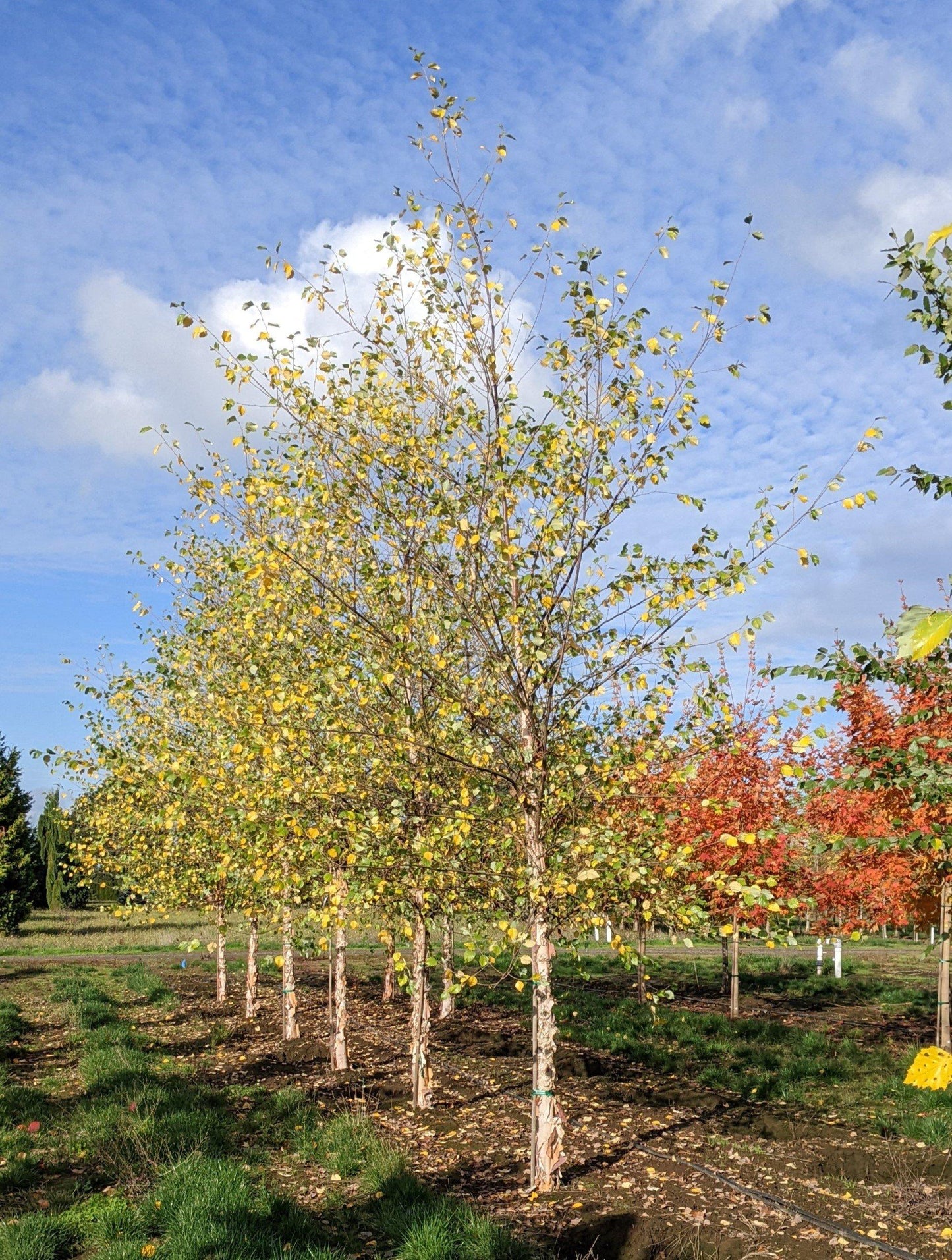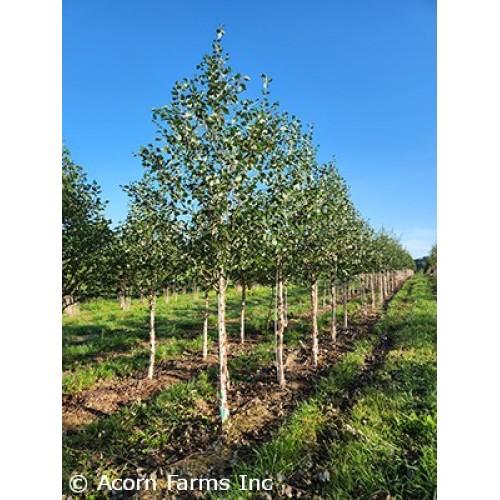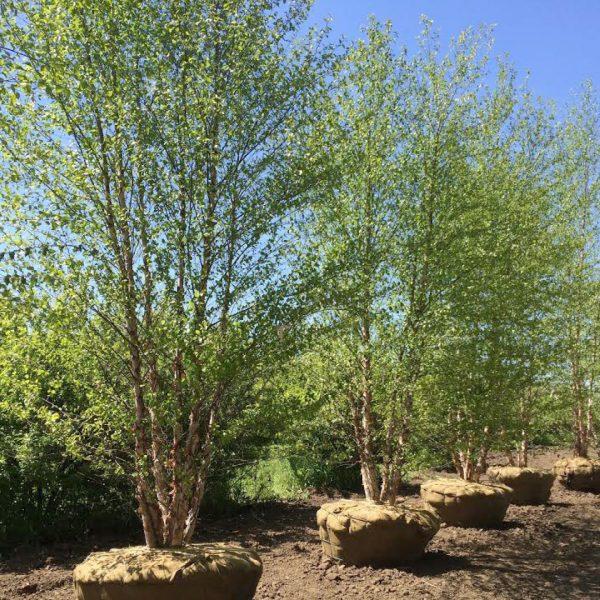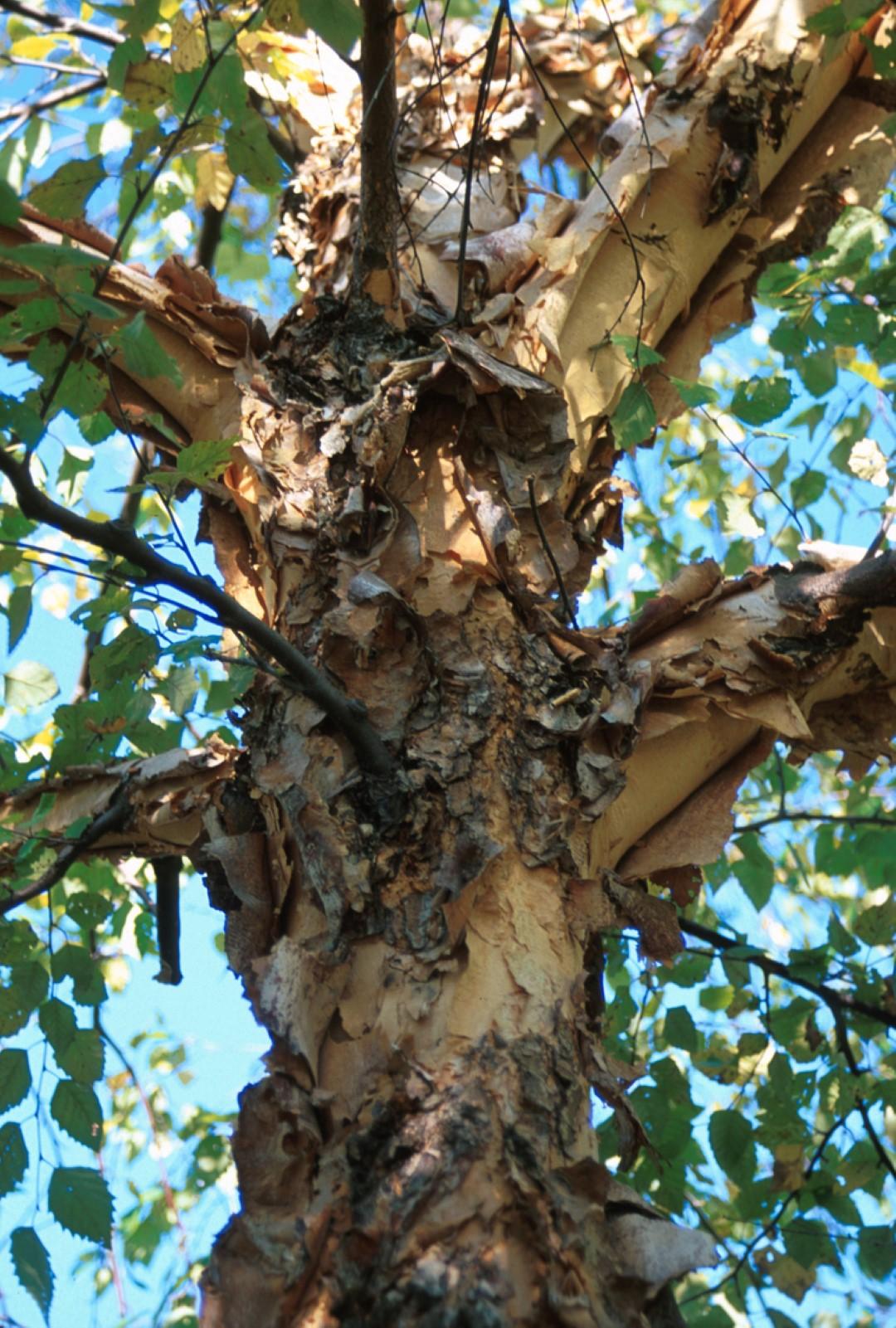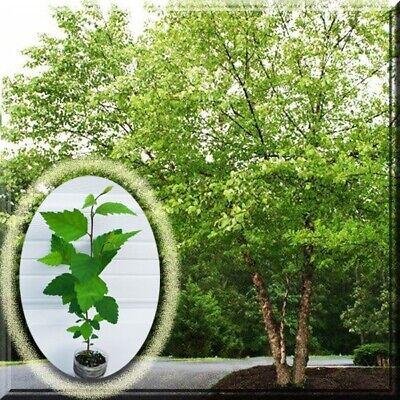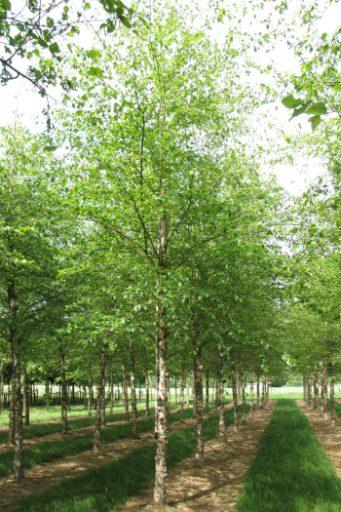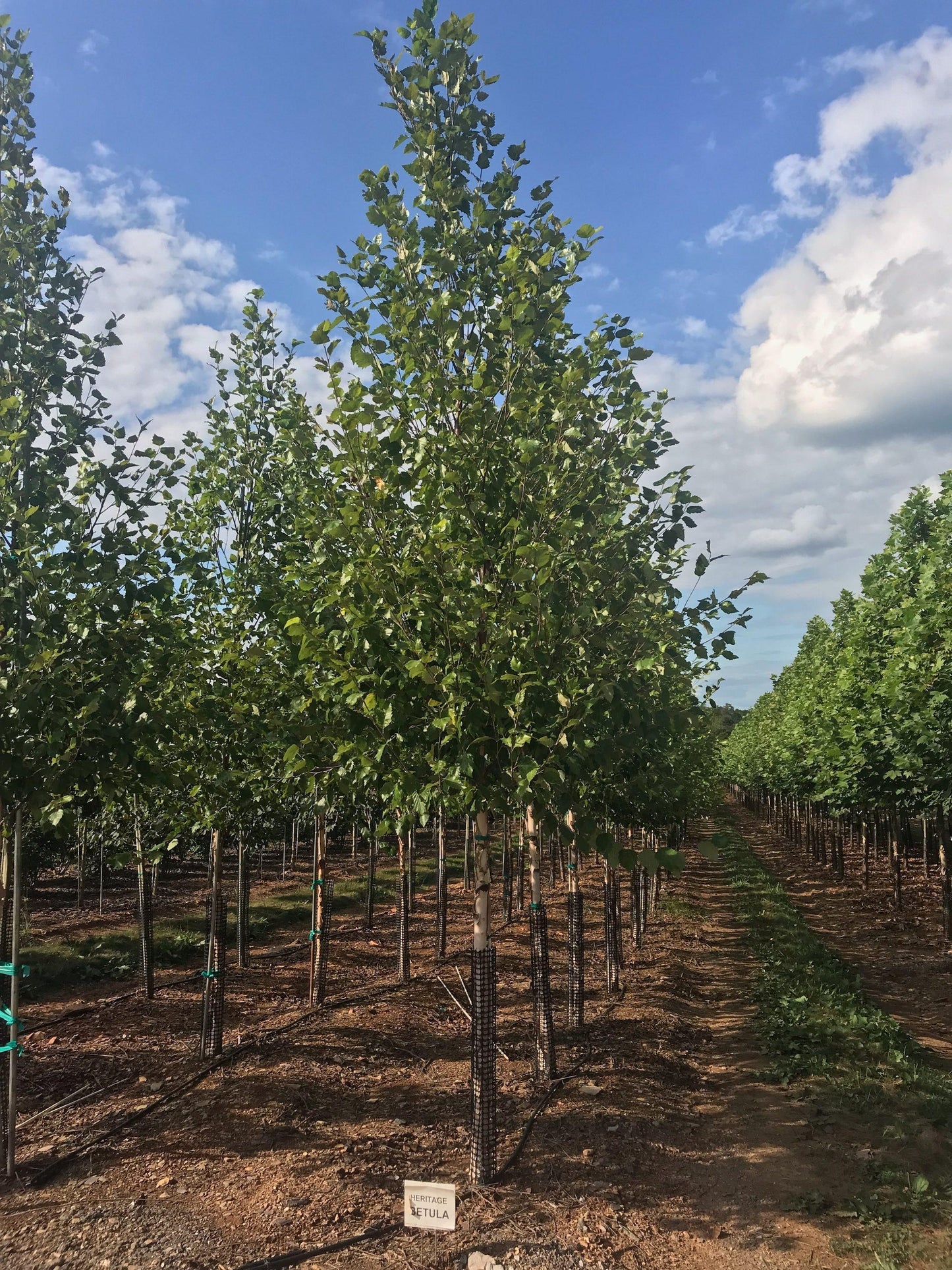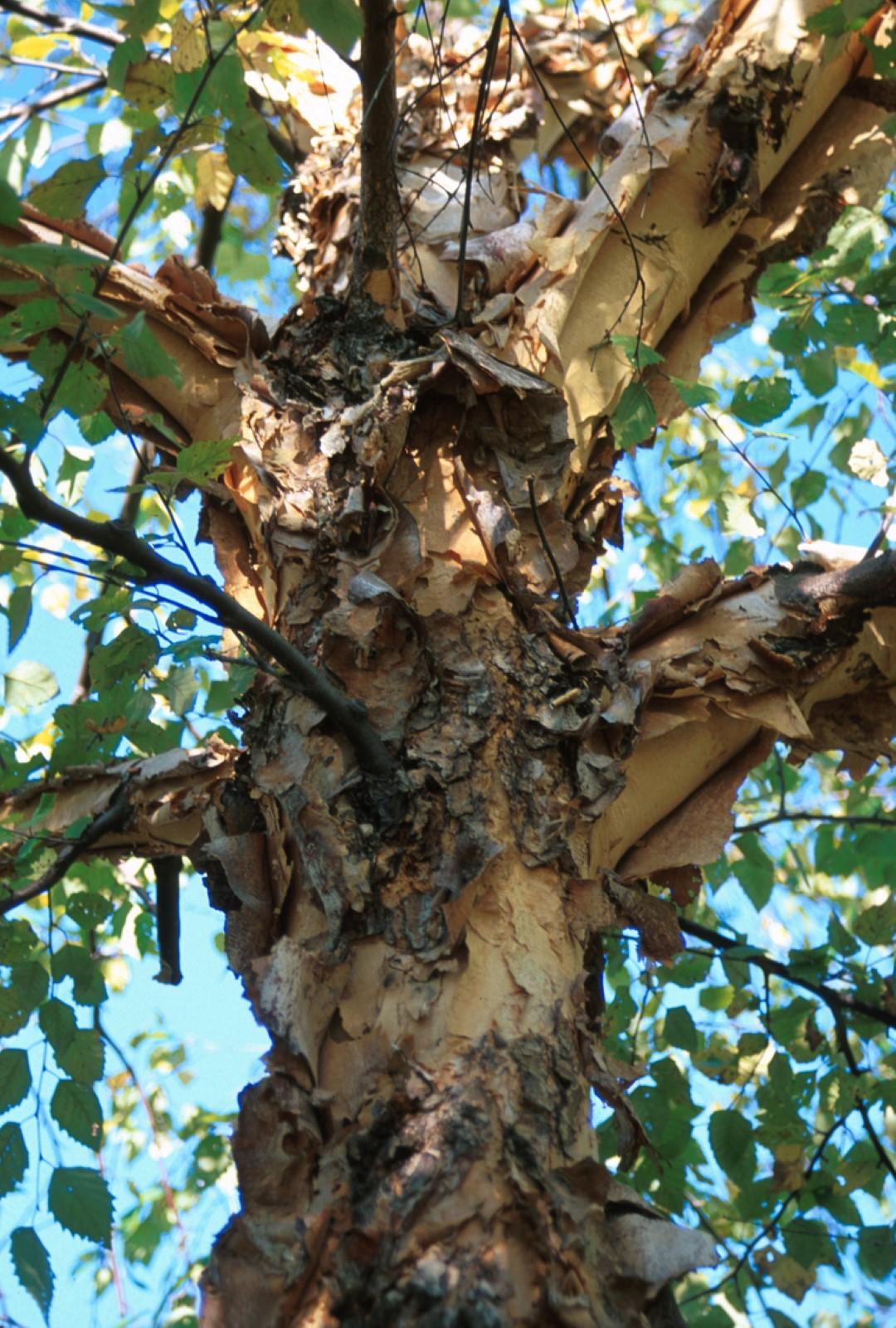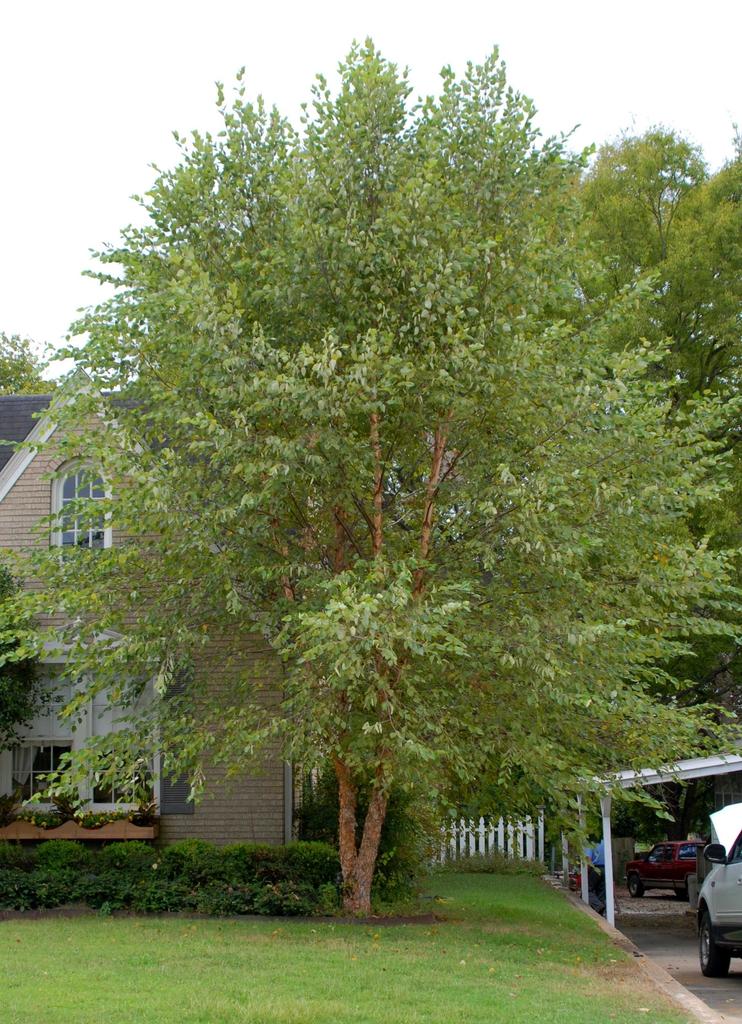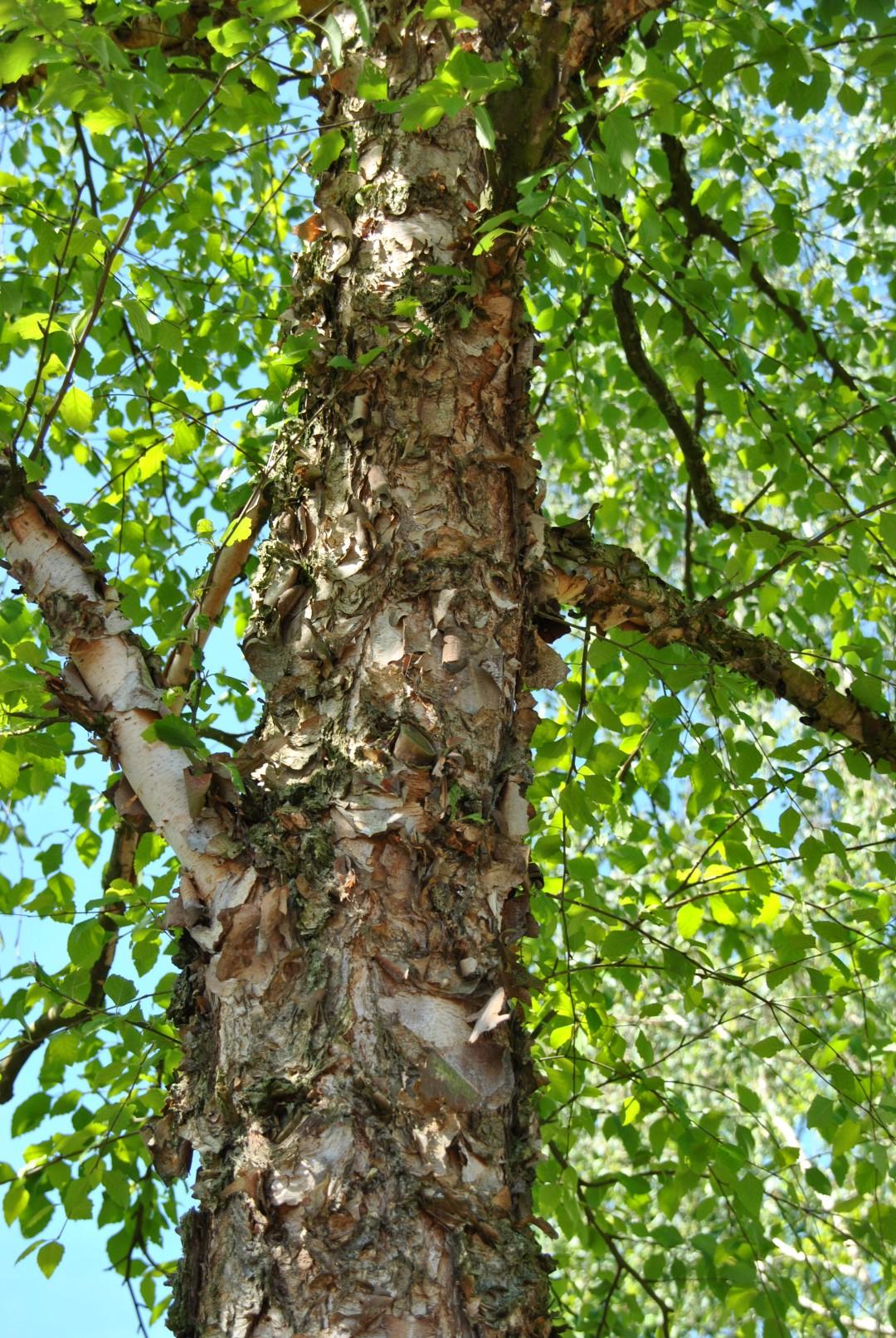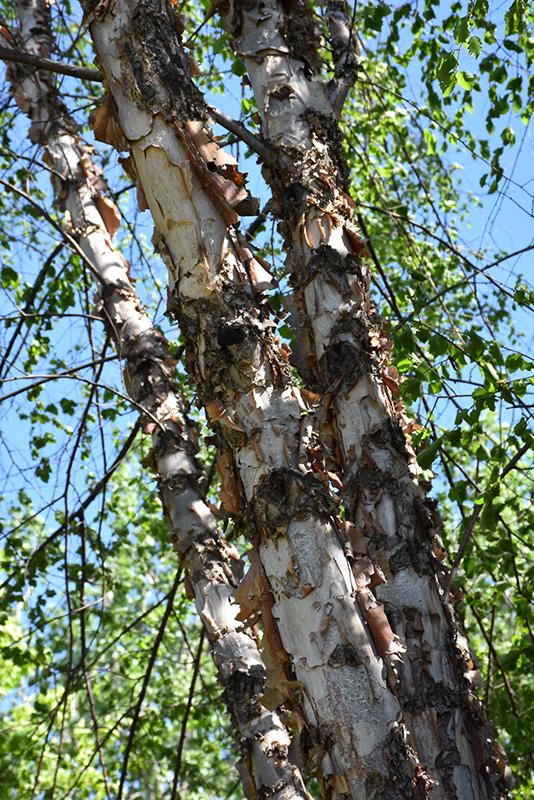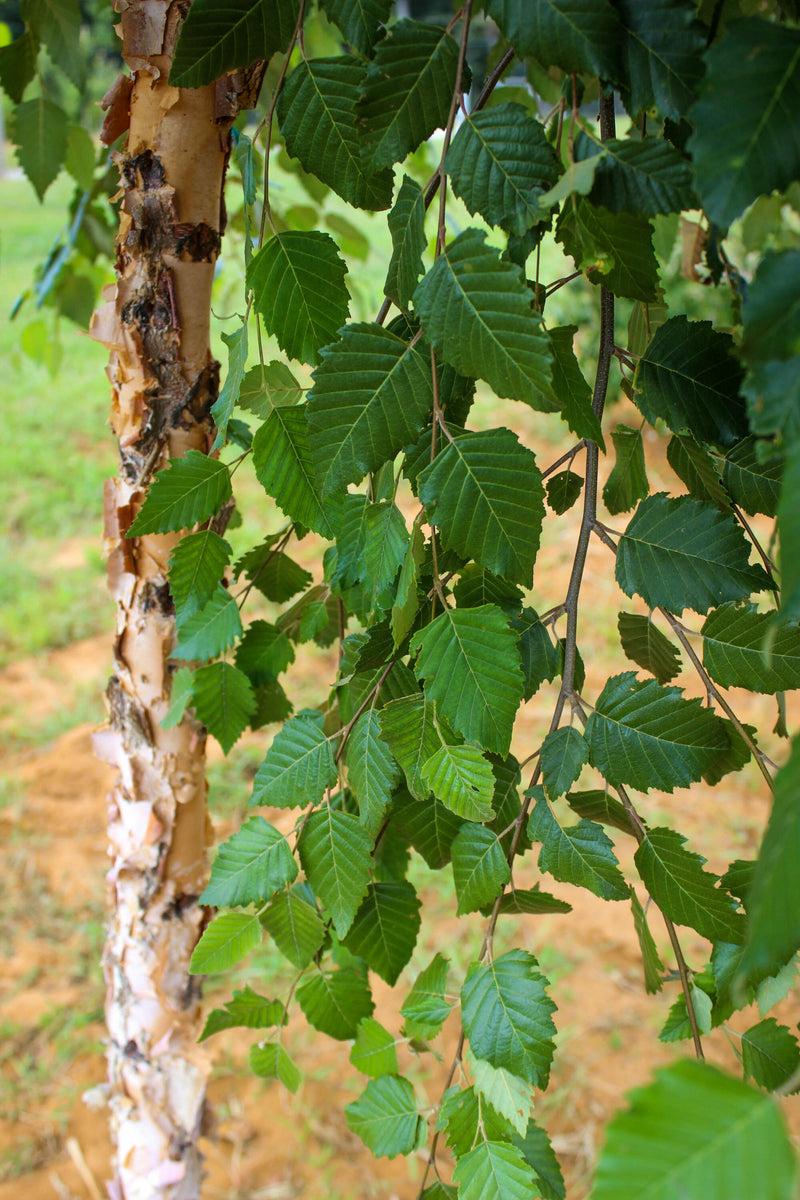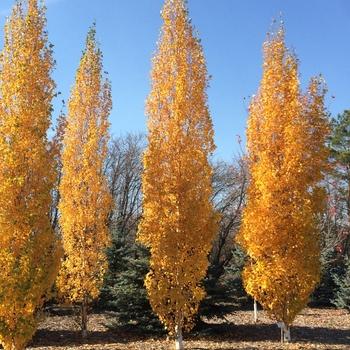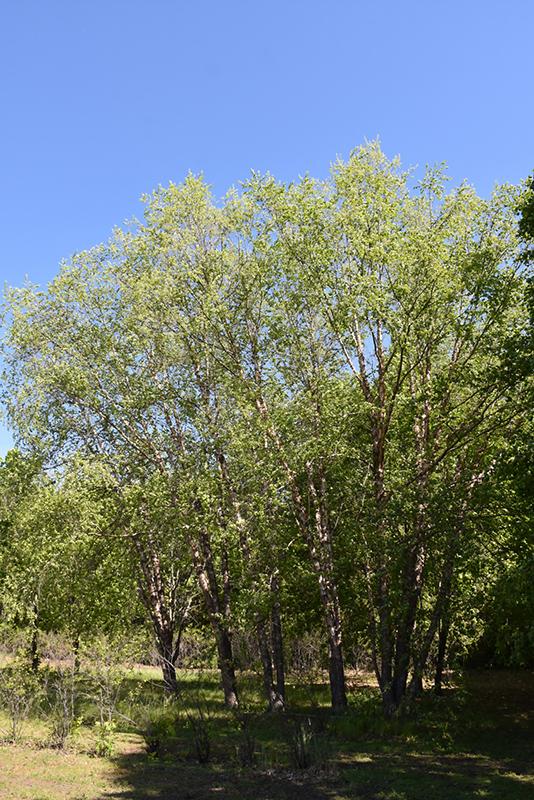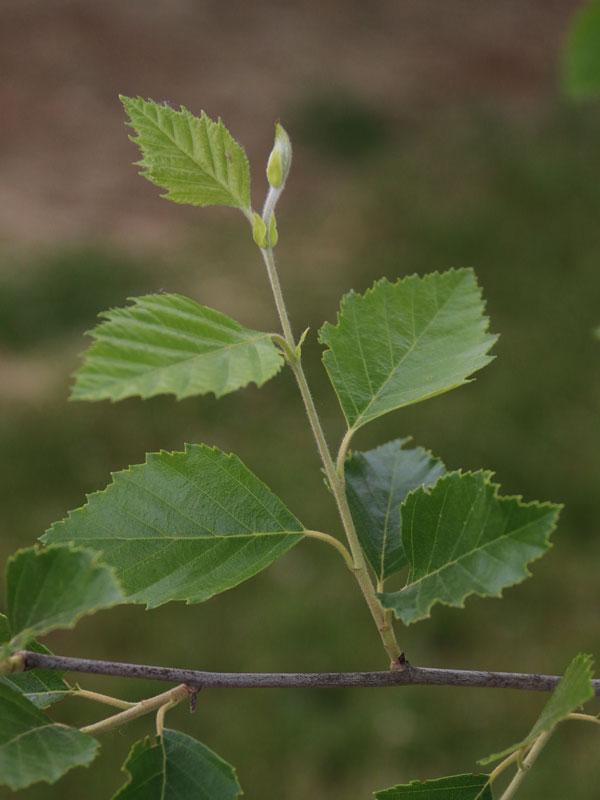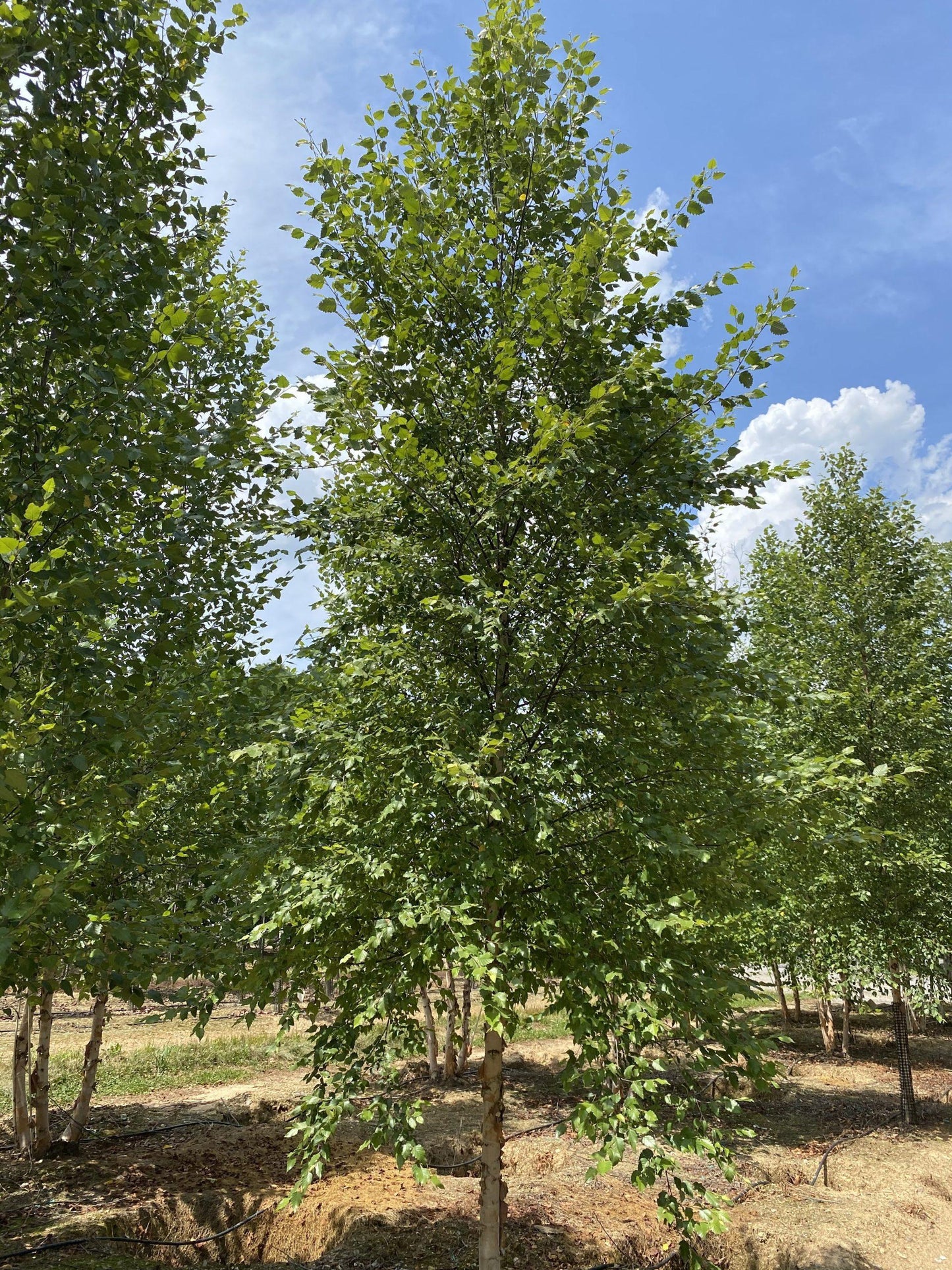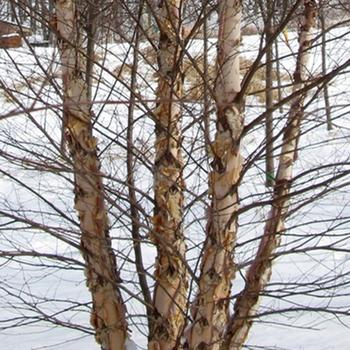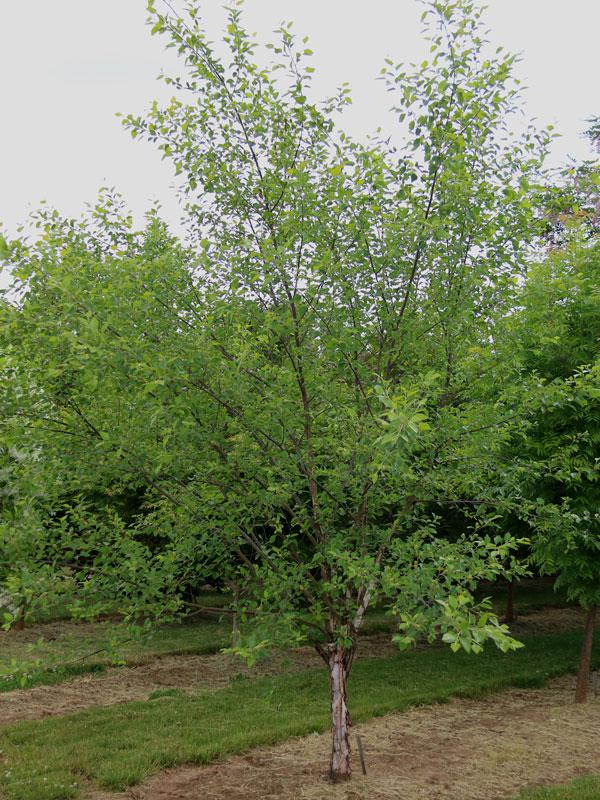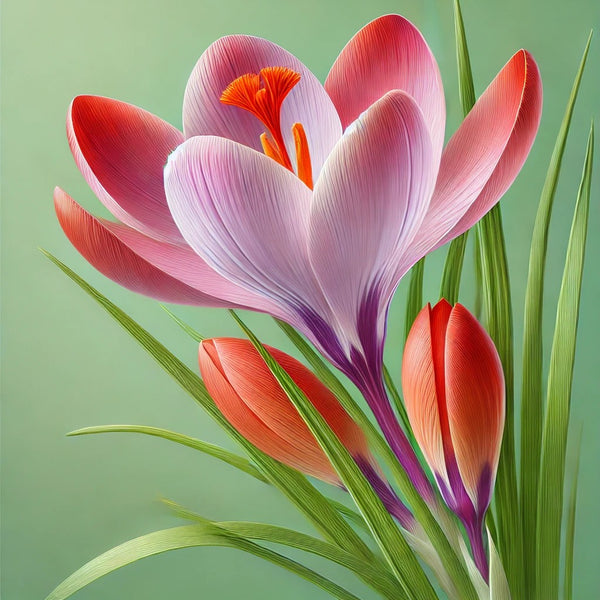1
/
of
18
Northern Tribute River Birch-Deciduous-Hardy and adaptable tree 3-3.5" cal B&B
Northern Tribute River Birch-Deciduous-Hardy and adaptable tree 3-3.5" cal B&B
Regular price
$1,952.00 USD
Regular price
$2,537.60 USD
Sale price
$1,952.00 USD
Unit price
/
per
Shipping calculated at checkout.
SKU:nto2625-redcrocus
Couldn't load pickup availability
Betula nigra 'Northern Tribute' - Single Stem
Description
Betula nigra 'Northern Tribute', commonly known as the Northern Tribute River Birch, is a deciduous tree known for its attractive peeling bark and vibrant fall foliage. This cultivar is prized for its hardiness and adaptability, making it a popular choice for landscapes across various climates.
Suggested Uses
This tree is ideal for use as a specimen plant in gardens, for lining streets, or as part of a mixed border. Its tolerance to wet soils makes it suitable for planting near water features or in rain gardens.
Plant Details
-
 Botanical Name: Betula nigra 'Northern Tribute' - Single Stem
Botanical Name: Betula nigra 'Northern Tribute' - Single Stem -
 Common Name: Northern Tribute River Birch
Common Name: Northern Tribute River Birch -
 Size & Growth: Typically grows 40-50 feet tall with a spread of 30-40 feet
Size & Growth: Typically grows 40-50 feet tall with a spread of 30-40 feet -
 Hardiness Zones: 4-9
Hardiness Zones: 4-9 -
 Foliage Type: Deciduous
Foliage Type: Deciduous -
 Bloom Time: Spring
Bloom Time: Spring -
 Growth Rate: Fast
Growth Rate: Fast -
 Light Requirements: Full sun to partial shade
Light Requirements: Full sun to partial shade -
 Attracts Pollinators: Yes
Attracts Pollinators: Yes -
 Indoor Friendly: No
Indoor Friendly: No -
 Container Friendly: No
Container Friendly: No -
 Deer Resistant: Yes
Deer Resistant: Yes -
 Pet Warning: Non-toxic
Pet Warning: Non-toxic -
 Fragrant: No
Fragrant: No -
 Cut Flower: No
Cut Flower: No -
 Grows Well With: Other moisture-loving plants like willows and dogwoods
Grows Well With: Other moisture-loving plants like willows and dogwoods
Care Tips
-
 Planting Instructions: Plant in spring or fall, ensuring the root ball is level with the soil surface
Planting Instructions: Plant in spring or fall, ensuring the root ball is level with the soil surface -
 Soil Moisture: Prefers moist, well-drained soil
Soil Moisture: Prefers moist, well-drained soil -
 Soil Type: Tolerates a wide range of soils, including clay and sandy soils
Soil Type: Tolerates a wide range of soils, including clay and sandy soils -
 Humidity: Thrives in humid environments
Humidity: Thrives in humid environments -
 Pruning Instructions: Prune in late winter to early spring to maintain shape and remove dead branches
Pruning Instructions: Prune in late winter to early spring to maintain shape and remove dead branches -
 Winter Care: Mulch around the base to protect roots in colder climates
Winter Care: Mulch around the base to protect roots in colder climates -
 Planting Depth: Plant at the same depth as it was in the nursery container
Planting Depth: Plant at the same depth as it was in the nursery container -
 Fertilization: Fertilize in early spring with a balanced fertilizer
Fertilization: Fertilize in early spring with a balanced fertilizer -
 Special Care: Regularly check for signs of pests or disease, particularly birch borers
Special Care: Regularly check for signs of pests or disease, particularly birch borers
Share
